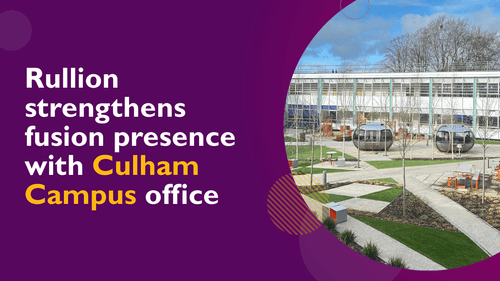APSCo's MSP Award Shortlist for Rullion x E.ON Partnership
Rullion have been named in the MSP award shortlist "MSP of the Year" at APSCo OutSource Awards for Excellence 2025, celebrating excellence and innovation in recruitment outsourcing. This shortlisting recognises our standout Managed Service Programme (MSP) partnership with E.ON, one of the UK’s leading energy suppliers.
“Making it to the MSP awards shortlist is a real testament to the partnership we’ve built with E.ON. It shows how a truly strategic MSP can make a difference, especially the fantastic work that Tracy, Terrie, and Sinéad did to adapt our MSP model to the needs of a fast-changing energy landscape.”
- Lindsay Harrison, Chief Customer Officer at Rullion
Over the past year, hiring demand across critical infrastructure has reached unprecedented levels. Our work with E.ON is a great example of how to manage a contingent workforce in the energy sector; we’ve delivered measurable results at speed and scale, without compromising on quality or care.
An MSP Model Built for Impact
Our success is based on a people-first, insight-driven delivery model that puts E.ON’s values and evolving needs at the centre. When it comes to managing a contingent workforce, no two clients are the same – and our E.ON solution is a high-touch, fully embedded partnership that delivers on compliance, cost control, agility and cultural fit.
Rather than relying heavily on second-tier suppliers, we’ve implemented a direct fulfilment model that gives E.ON greater control over quality, consistency and cost. Through this, we’ve achieved 100% direct hires. a 2:1 CV-to-interview ratio, reduced time-to-hire by 15%, and improved interview-to-offer conversion by 25%. It’s a delivery model built for today’s critical infrastructure needs and ready to scale.
A Hiring Strategy That Delivers Lasting Results
Across Rullion, we use a behaviour-first hiring strategy. This means we don’t rely solely on experience. We assess candidates based on their potential and alignment with E.ON’s values and culture.
This approach has supported smoother onboarding, reduced attrition, and improved conversion from contingent to permanent roles. In fact, 11% of workers placed via Rullion at E.ON converted to permanent roles, with over 85% retention across the MSP. Engagement has also increased, driven by ongoing development opportunities, wellbeing support, and a personalised, people-first experience.
Outcomes That Speak Volumes
Our bespoke Client Value Framework tracks five key pillars: cost savings, compliance, operational excellence, innovation, and social value. This is how we measure what matters. Here’s how that translates at E.ON:
- 99% fill rate across the MSP (92% at time of submission): critical roles are filled with consistency and speed, keeping operations moving without disruption.
- 100% satisfaction in post-hire surveys: every worker placed through our MSP reports feeling supported and set up for success from day one.
- 100% timesheet accuracy: contractors are paid accurately and on time – building trust, loyalty, and a positive experience throughout the assignment.
- +60 Net Promotor Score (NPS) from hiring managers: our delivery quality, responsiveness, and embedded team approach are consistently rated as ‘Excellent’ by our clients.
- 25% improvement in interview-to-offer ratio: we’re enabling faster decisions, stronger shortlists, and more efficient hiring cycles.
- Over 85% retention across placements: we place the right people, who stay – reducing rehire costs, protecting institutional knowledge, and supporting business continuity.
- 99% onboarding compliance: our rigorous onboarding standards ensure our clients remain protected and each new starter meets strict regulatory and process requirements. The 1% variance was due to delayed candidate documentation, not process gaps.
These metrics don’t just sit in reports; we use this data to drive continuous improvement – from simplifying onboarding routes to improving IT access and escalation processes. These findings are then reviewed monthly at leadership level and implemented into quarterly business reviews to ensure accountability and momentum.
While our MSP is led through direct fulfilment, we hold our niche supply partners we do work with to the same high standards. We measure their performance with quarterly scorecards and ensure they are aligned to our values. All of our suppliers are to adhere to our Supplier Code of Conduct, and we provide training on inclusive recruitment, host performance clinics, and share best practices to help partners meet standards and grow with us.
A Managed Service Provider for the Future
Our MSP at E.ON is a standout example of what we do best: high-performance hiring with a human touch, scalable solutions that evolve with business needs, and a shared commitment to inclusion and innovation.
“Rullion is more than a recruitment partner – they are an extension of our team… They’re friendly, enthusiastic, and always translating insight into what really matters for E.ON.”
We’re proud to help critical infrastructure organisations like E.ON through strategic MSP and contingent workforce solutions.
If you’re looking for a workforce solutions provider that solves problems today and builds stronger, more inclusive talent strategies for tomorrow, explore our MSP solution or book a discovery call today.





